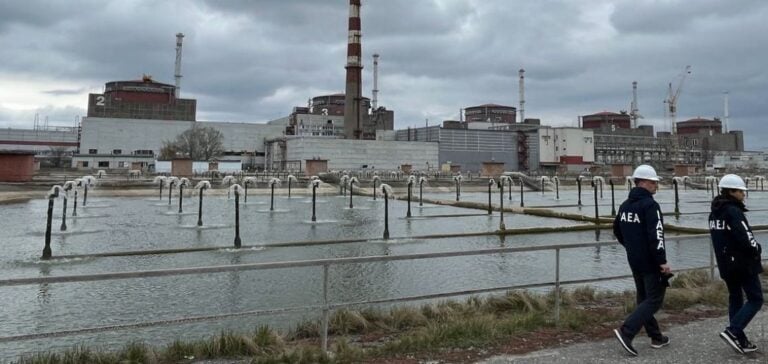The safety of Ukraine’s nuclear power plants, particularly those at Kursk and Zaporizhzhia, is a major concern as fighting intensifies in these regions.
Rafael Grossi, Director General of the International Atomic Energy Agency (IAEA), meets Volodymyr Zelensky to discuss the immediate risks associated with the proximity of the fighting to these critical infrastructures.
The conflict in Ukraine is putting the security of nuclear facilities under severe strain, heightening the risk of serious incidents.
The IAEA, which is monitoring the situation closely, stresses that the stability of the power grids linking these plants is essential to their smooth operation.
Frequent power interruptions, exacerbated by the hostilities, compromise the safety of the reactors.
The Zaporijjia power plant, which has been under Russian control since the beginning of the conflict, is subject to increased surveillance due to its vulnerability.
Risques Accrus en Zone de Conflit
The proximity of the fighting around the Kursk power plant in Russia poses a direct risk to nuclear safety.
The Ukrainian incursion into this region, launched at the beginning of August 2024, exacerbates this situation.
The IAEA insists on the need to guarantee the safety of nuclear installations by avoiding any military action that could provoke a radiological emergency.
Grossi, during his inspection at Kursk, reminds us of the importance of maintaining plant safety, a crucial issue in preventing disasters.
Volodymyr Zelensky recognizes the seriousness of the situation and supports efforts to protect nuclear facilities.
Moscow’s warnings of the dangers of an attack on the Kursk plant add to the complexity of the situation, underlining the growing tensions in the region.
IAEA Monitoring and Assessment Measures
The IAEA is planning to send a team of experts to assess the damage sustained by certain Ukrainian power stations, which are vital for the safety of the power plants.
The aim of this assessment is to identify the risks and propose solutions for securing these infrastructures.
The conclusions of this mission will be decisive in guiding future actions, emphasizing the need to stabilize power networks to avoid critical blackouts.
The situation at Ukraine’s nuclear power plants demands continuous attention and coordinated action from all parties involved.
The discussions between Grossi and Zelensky are part of this framework, seeking to minimize risks in a context of prolonged conflict.






















